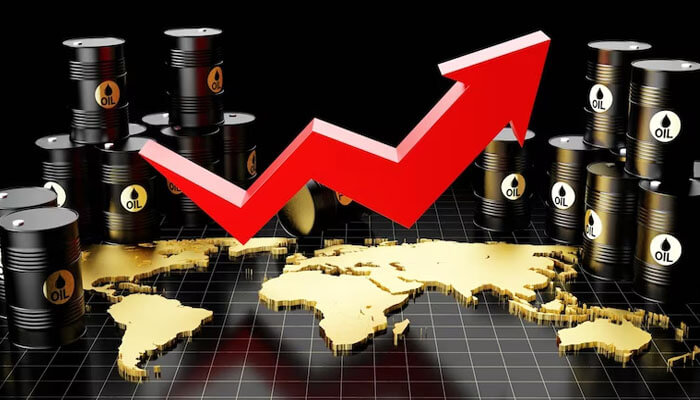When some of the biggest oil exporters in the world declared unexpected cutbacks, oil prices have risen. Once trading got underway, the price of Brent Crude oil increased by more than $5 a barrel, or 7%, to over $85 per barrel.
The surge happened following Sunday’s announcement by Saudi Arabia, Iraq, and numerous Gulf states that they would be reducing output by more than one million barrels per day. Oil prices have since returned to the pre-conflict levels after surging when Russia invaded Ukraine.
To cut energy prices, the US has however been urging producers to raise supply. Last year’s high gasoline and energy costs contributed to an increase in inflation, or the rates at which costs grow, which put a strain on the budgets of many households.
A representative for the US National Security Council responded to the revelation of the most recent reduction by saying: “We don’t believe reductions are appropriate at this time given market volatility – and we’ve made that clear.”
Members of Opec+ oil producers are cutting back on production. The company produces around 40% of the total amount of crude oil produced worldwide.
Saudi Arabia and Iraq both cut production by 211,000 and 500,000 barrels per day, respectively. Cuts are also being made by the UAE, Kuwait, Algeria, and Oman. According to the official Saudi News Agency, a representative of the Saudi energy ministry described the action as “a security precaution meant to promote the sustainability of the oil market.”

International oil strategist Nathan Piper stated to the BBC that the action by Opec+ popped up to be an effort to keep the price of oil above $80 a barrel in the medium to long term, provided that punitive measures have only had a “limited impact” on limiting Russian oil resources and that demand may be negatively impacted by a lessening world economy.
This unexpected news is important for a number of reasons.
Notwithstanding recent price swings, there were worries that the world’s oil needs would exceed supply, particularly as the year came to a close. Following the decision on Sunday, the price of oil may rise, which could increase inflation pressure and exacerbate the cost-of-living crisis while increasing the likelihood of a recession.
Interestingly, this information was released the day before the Opec+ gathering. That has come as a major surprise because members had given hints that they would maintain the same production policy, which meant there would be no new cuts. There is a chance that more group members will announce voluntary reduction, further reducing supply.
The development is also likely to sour relations between the United States and Opec+, which is led by Saudi Arabia. The company had been urged by the White House to enhance supplies to lower prices and monitor Russian budgets.
Yet Sunday’s statement also highlights how closely Russia and the oil-producing nations work together.


